It's probable that Bodacious Space Pirates isn't what you expect. Based off the imaginatively titled Miniskirt Space Pirates light novel, this is not cute girls drinking tea in space. Well, not all of the time.
The series starts divisively enough by explaining the finer points of course plotting and the minutiae of electronic warfare between space vessels, hammering home the point with an encounter concluded through abstract blobs moving about on a computer screen and the futuristic equivalent of touch typing. It's an approach that nestles between the hard science-fiction of Sekai no Senki and the bombast of Nadesico.
This spacefaring adventure owes a lot to its influences, ranging from Asimov and Clarke - the Rama trilogy is invoked in all but name at one point - with nods to Iain M. Banks' Culture series of novels and even a hat tip to Alice Through the Looking Glass. Even the director's previous space adventure Stellvia is roped in with the Glennorth lineage spanning far beyond the Solar System of that fiction.
This is after all a story of dynasties and empires, the home planet of protagonist Marika having broken away from the clutches of the Galactic Empire many years prior, thanks in no small part to the pirates who were authorised by the government of the time with letters of marque. Privateers by any other name then, the contemporary pirates of the series busy themselves with carnival-esque parties for the rich and sheltered, pilfering their trinkets and baubles only for their owners to be recompensed by mercantile insurance companies.
These are not the grimy, cut-throats of yore or even the hostage traders of recent time then but a dandy, polite but ultimately devious bunch who yearn for the freedom only a pirate's life can offer. So when Marika, still hurtling through a gilded and well-to-do high school, supersedes her father as captain of the Bentenmaru, the question is posed as to where exactly the series is heading with this set up.
Surely the gaggle of girls who make up the yacht club will be Marika's crew? In the first of a number of smart decisions the series makes, the eclectic crew of a mystic, a doctor, a cyborg, a nerd and a stuffed animal otaku is left in tact. Eventually though the peppy schoolgirls are given their time at the helm thanks to the crew coming down with the equivalent of space flu. It's a blunt and transparent move which is at odds with the assured and soft hand applied to the rest of the story.
Plots are stripped of cruft leaving a lean handful of stories that grow in confidence until the finale which uses all the world building that has gone before it to sublime effect. The lengthy diatribes on the great families of the galaxy and the focus on the dichotomy between Marika's school life and her pirating job has ebbed away and instead there are some tense, genuinely thrilling space battles.
No one can die though in this world of candy pink space suits and the garish livery of a school girl pirate captain. Marika's leadership style may cleave a little too close to the "all according to plan" school of scheming but her earnestness and the ferocious enthusiasm that underpins the series more than offsets this. It may be absurd for a teenager to be commanding a crew but she earns their loyalty through grit and success; no more is this apparent than with Chiaki.
Ostensibly the other protagonist given her prominence in the bonkers opening animation, Chiaki is criminally underused especially when it's clear her chemistry with Marika as the straight-man to her boundless optimism is so endearing. As a mere engineer on her father's pirate ship, she is initially standoffish towards Marika's meteoric ascent to a captain but her respect for her grows with each solid decision, ending the series with the question of whether she will stay with her father or leave and follow Marika.
Again the composed hand of the director is what guides the character's relationships, certainly a challenge when the majority of the cast are female. Never does that feel like a decision made in the wake of Kyoto Animation's juggernauts though, there is an understanding of the differences between genders but a choice is made to plant the story's feet firmly with the females. No clearer is this than with the lesbian kiss half way through the series.
Audacious for dispelling the pithy subtext that usually goes alongside an all-girl cast, it is frank and as far from the sapphic pillow-fight dreams of adolescence as possible. More importantly it has context and ramifications: the kiss is initially played for shock value but the romance behind it is important long after the their lips separate. Repeating the kiss seems a little heavy handed but is commendable for clearing the air of any taboo-breaking undertones that may accompany such an act in an anime.
If Bodacious Space Pirates lacks anything then, it certainly isn't confidence and imagination. The second major storyline - an abandoned floating colony ship and the withering of a royal bloodline - has enough content to support a series by itself. At times though the series lacks the punch it needs to really exploit the rich fiction it has constructed. Subterfuge, androids and the encroachment of the nefarious Galactic Empire are superb hooks but left far too late in the series while fluff such as a dinghy race precedes it. Likewise heavily signposted events like Marika losing the key to the Bentenmaru are resolved in short order or forgotten about altogether.
It is such an endlessly enjoyable series though that it's hard to take issue with it and the news of a subsequent movie is cause for celebration. If there are faults, some may come from expectation: it certainly isn't the narrative revelation that many proclaimed it to be when it first begun to air. Likewise the animation takes a significant hit in quality beyond a select few scenes and, probably the most alienating aspect of the series: its measured, some might say plodding, pace could be the tipping point for some. Beyond those niggles though is unfettered creativity applied to a universe and characters that are easy to fall in love with and share in both their jubilations and tribulations.
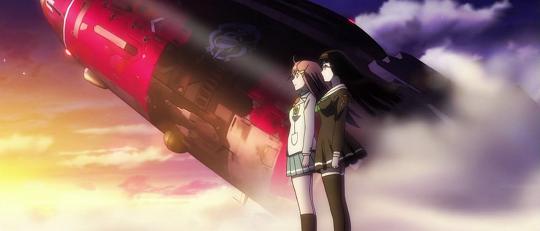
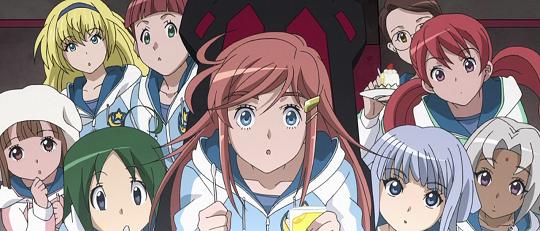
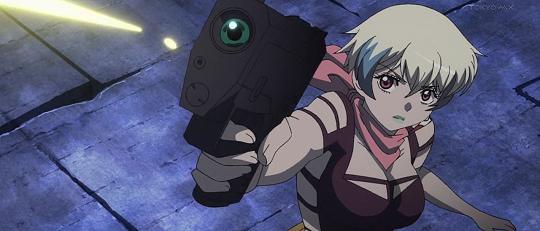
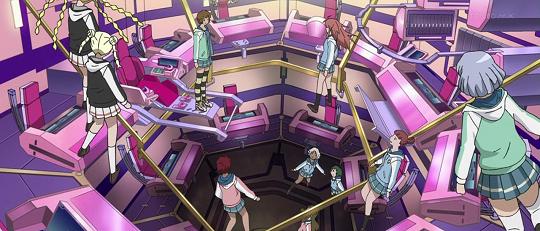
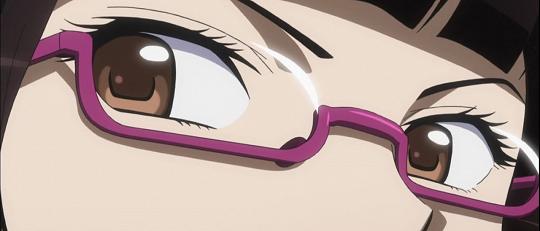

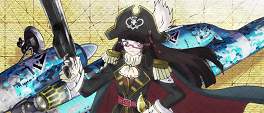


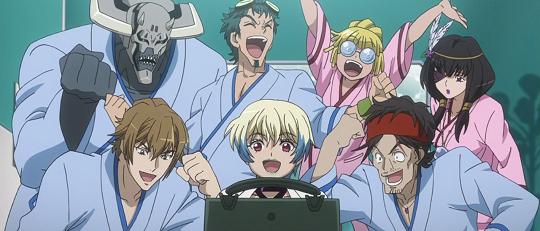
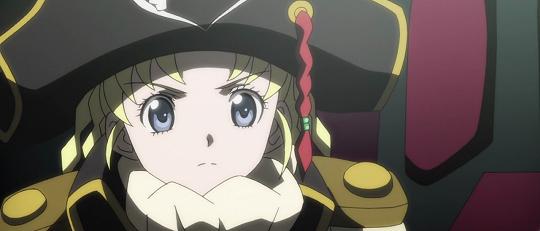

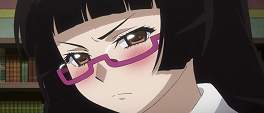
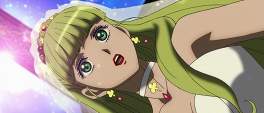

So, yes. I wasn't satisfied. It's almost as if they deliberately created a world with such great potential just so that they can troll us with such an obnoxiously facetious ending. Or maybe, that's the whole point behind this irony...